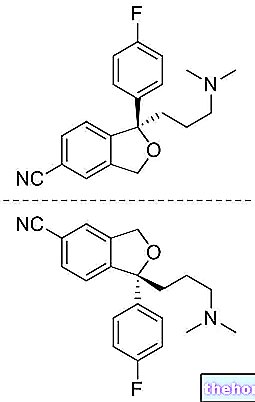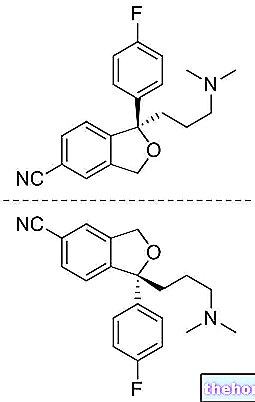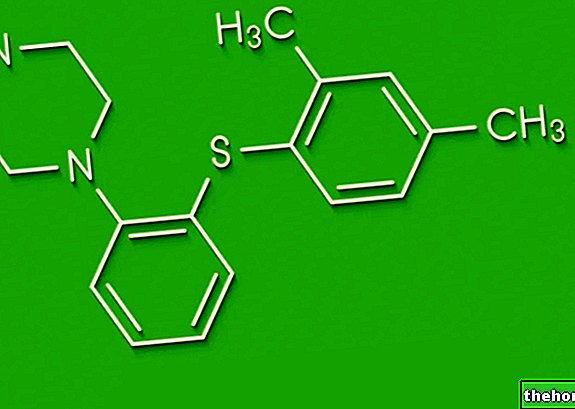Definition
Also known as Hughes syndrome or APS, anti-phospholipid antibody syndrome is a complex autoimmune disease characterized by recurrent miscarriages, thrombocytopenia, venous or arterial thrombosis, and by the presence of specific autoantibodies, called antiphospholipids.
Causes
We speak of primary anti-phospholipid antibody syndrome when it does not depend on autoimmune diseases; the secondary form, on the other hand, is autoimmune in nature and is closely related to lupus erythematosus. Among the predisposing factors, we remember: abuse of some drugs (hydralazine, phenytoin, Amoxicillin), infections (hepatitis C, HIV, malaria), genetic predisposition, development of antiphospholipid antibodies.
Symptoms
The anti-phospholipid antibody syndrome is characterized by the appearance of thrombotic manifestations affecting arteries, veins or capillaries of any anatomical district; the syndrome can degenerate into pulmonary embolism, ischemic stroke, myocardial infarction, occlusion of the visceral arteries or deep vein thrombosis. The anti-phospholipid antibody syndrome becomes very problematic when it occurs in pregnancy, as it can cause fetal growth retardation, premature birth, preeclampsia and placental insufficiency.
The information on Drugs for Anti-Phospholipid Antibody Syndrome is not intended to replace the direct relationship between health professional and patient. Always consult your doctor and / or specialist before taking Anti-Phospholipid Antibody Syndrome Medicines.
Medicines
Patients in whom high levels of antiphospholipid antibodies are observed in the blood must undergo specific tests, since the presence of these abnormal antibodies could trigger very serious consequences, such as thrombosis in general.
The drugs of choice for the treatment of the anti-phospholipid antibody syndrome are certainly anticoagulants, to be used periodically, and antiplatelet agents. Only in case of extreme severity (catastrophic syndrome of antiphospholipid antibodies), it is possible to use immunosuppressive drugs, immunoglobulins. and possibly resort to plasmapheresis.
During pregnancy, as mentioned above, the anti-phospholipid antibody syndrome could trigger serious complications, especially in the unborn child; therefore, drug therapy, although extremely complex during gestation, proves necessary, and is essentially based on the administration of anticoagulants, such as heparins and acetylsalicylic acid. Warfarin is not recommended during pregnancy, since it can cause serious side effects , such as birth defects.Only in extreme cases, when the benefits outweigh the risks, it is possible to prescribe the drug to the pregnant woman.
Anticoagulant therapy requires constant monitoring of the blood tests of the patient suffering from the anti-phospholipid antibody syndrome.
The following are the classes of drugs most used in the therapy against the anti-phospholipid antibody syndrome, and some examples of pharmacological specialties; it is up to the doctor to choose the most suitable active ingredient and dosage for the patient, based on the severity of the disease, the state of health of the patient and his response to treatment:
- Heparin (eg Heparin Cal Acv, Heparin Sod.Ath, Ateroclar, Trombolisin): heparin is administered in small doses by slow infusion; it is generally combined with another anticoagulant (eg Warfarin). In general, for the treatment and the prevention of thrombotic events in the context of anti-phospholipid antibody syndrome, it is recommended to take an active dose of 100 units / ml, every 6-8 hours for PVC catheters; alternatively, for the prevention of deep vein thrombosis, take 5000 units of drug, subcutaneously, every 8-12 hours Consult your doctor.
Some types of heparin (for example, dalteparin and enoxaparin) can also be taken during pregnancy, in order to avoid the degeneration of the anti-phospholipid antibody syndrome into serious complications. Heparin can also be used in pregnancy, to increase the chances of therapeutic success in the context of the anti-phospholipid antibody syndrome: indicatively, it is recommended to take 5000 units of the drug subcutaneously every 12 hours. The dosage can be changed by the patient. doctor, based on the severity of the syndrome.
- Enoxaparin (eg Clexane): for the prophylaxis of venous thrombosis in the context of anti-phospholipid antibody syndrome, it is recommended to take an active dose of 40 mg, subcutaneously, once a day. The duration of therapy varies from 6 to 14 days. If the patient is obese, it is recommended to follow a low-calorie, healthy and balanced diet, and to practice constant physical activity. The drug can also be taken during pregnancy.
- Dalteparin (eg Fragmin): low molecular weight drug, to be injected under the skin. The active ingredient is indicated, in particular, for the prevention of deep vein thrombosis also in the context of the anti-phospholipid antibody syndrome. The drug must be taken by subcutaneous injection at the dosage established by the doctor, based on the severity of the condition. The drug can also be combined with acetylsalicylic acid.
- Sulodexide (eg Provenal): the drug (heparin-like) is used in therapy for the treatment of vascular diseases with a high thrombotic risk; in this regard, its administration is sometimes also recommended for the anti-phospholipid antibody syndrome. As a guideline, take 2 capsules of 250 ULS per day, before meals.
- Warfarin (eg Coumadin): for the treatment of anti-phospholipid antibody syndrome, monotherapy with warfarin follows a period of treatment with an antiplatelet agent. In all likelihood, treatment with this drug will have to be lifelong. Although the dose must be carefully established by the doctor, indicatively, for the prophylaxis of thrombosis (closely associated with the anti-phospholipid antibody syndrome) it is recommended to take 2-5 mg of active, orally or intravenously, once a day or every another day.
- Acetylsalicylic acid (eg Aspirinetta, Cardioaspirin): aspirin can complement a drug program with other antiplatelet agents. Generally, aspirin is prescribed at a dosage of 75-100 mg (to be taken orally).
The drug (acetylsalicylic acid) reduces platelet aggregation by lowering the clotting capacity of the blood; the effect is particularly important for preventing thrombotic events often associated with anti-phospholipid antibody syndrome.




























